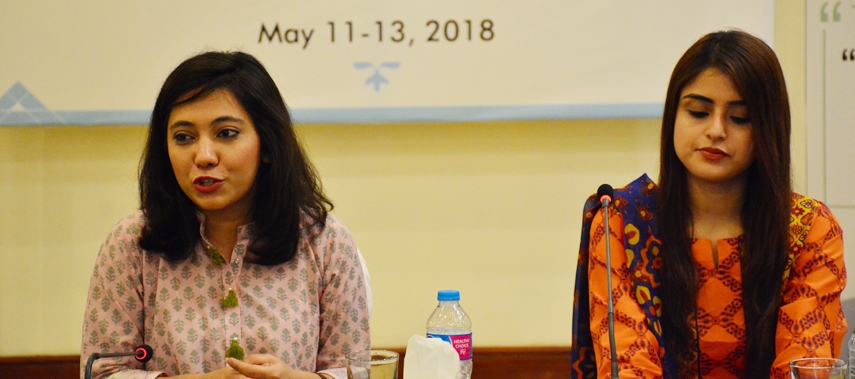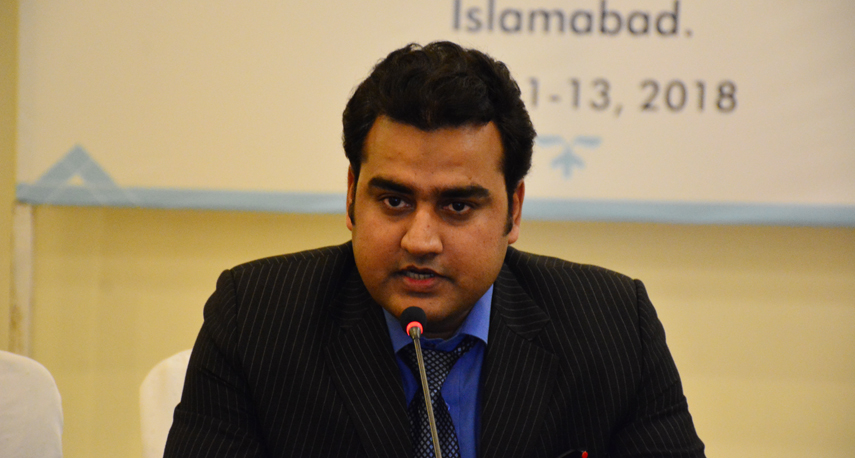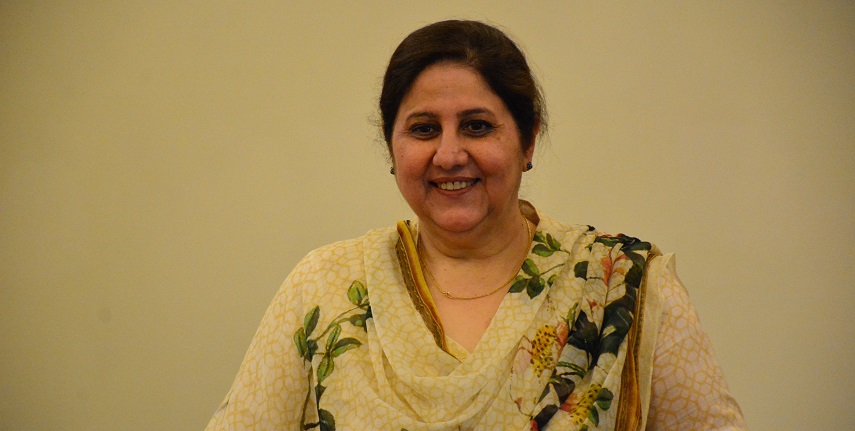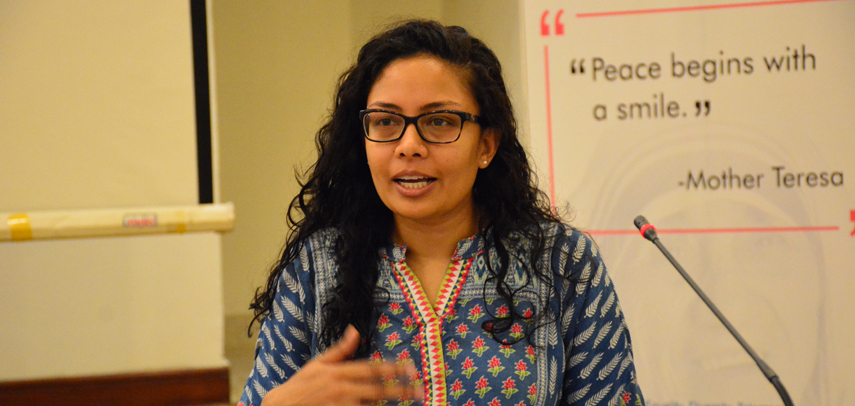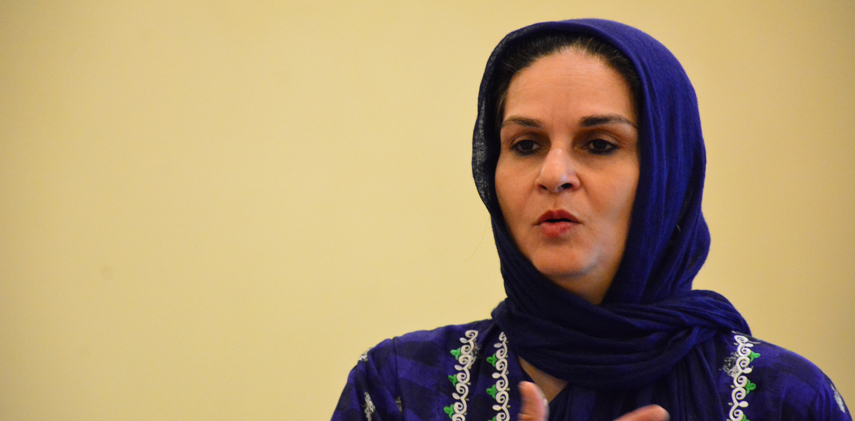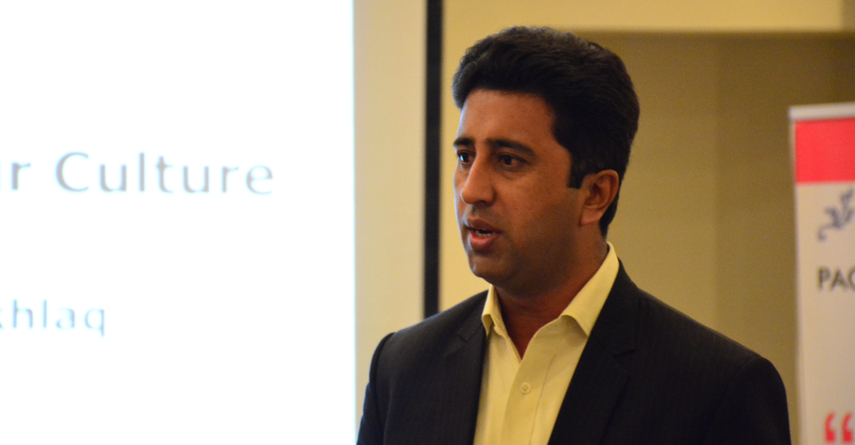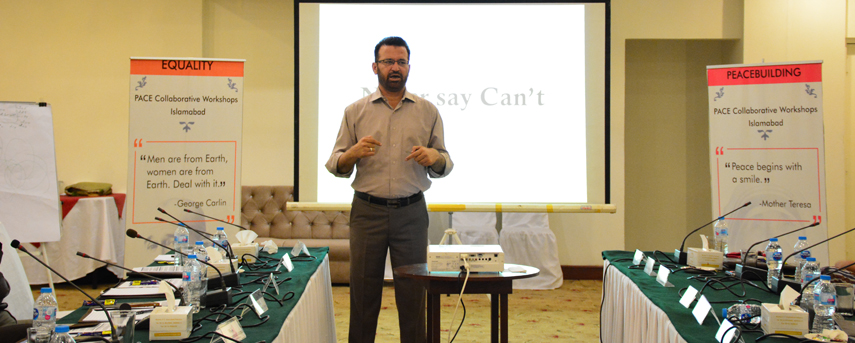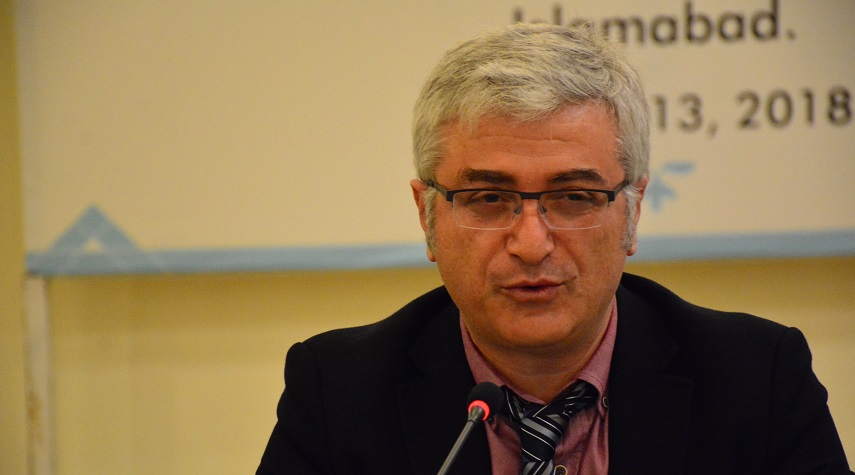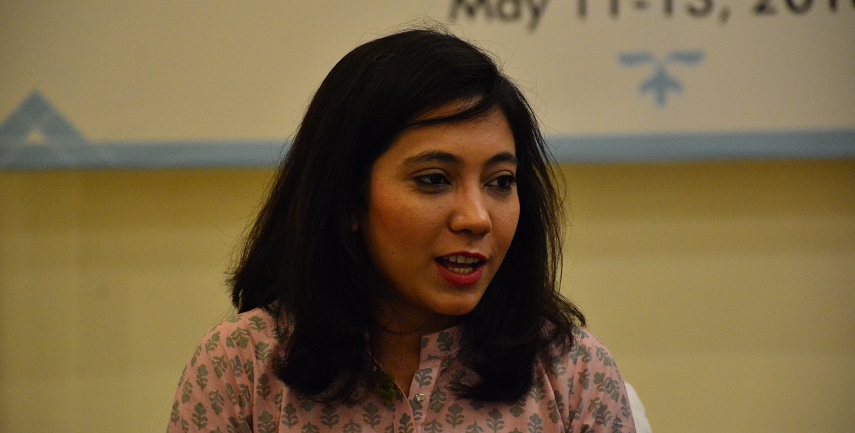The Center for Research and Security Studies (CRSS) conducted the 30th three-day PACE Collaborative workshop for young university lecturers and professors from May 11 – 13, 2018, at Hill View Hotel, Islamabad. The workshop was conducted under the umbrella of the Pakistan Center of Excellence (PACE), a counter-radicalization, pluralistic values focused project, in collaboration with the Dutch Government. Participants included young university lecturers and professors from all across Pakistan including Sindh, Balochistan, Punjab, KP, AJK, and FATA.
OPENING
Ms. Farhana Kanwal, Project Coordinator, PACE welcomed participants to the workshop, saying that PACE is put together by CRSS to counter radicalization, inculcate critical thinking, question preconceived notions and narratives, and embed the national discourse in constitutionalism and the rule of law. She elaborated the objectives of the training saying equal citizenry is a concept which is guaranteed in all the constitutions of the developed countries, including Pakistan. This workshop is designed to ponder on the issues we face in daily life but not on the basis of religiosity, we only have to deal with the twenty fundamentals rights entitled to the citizens of Pakistan in the constitution. Adherence to the constitution ensures social cohesion. He said that the primary objective of the workshop was to trigger critical thinking through a discourse anchored in fundamental global values such as socio-political diversity, acceptance of diversity, rule of law and equal citizenry. The idea is to create a critical mass of young leaders equipped with the skills to critically analyze issues, look at each other as equal citizens, and correct misperceptions about marginalized communities.
Dr. Tauqeer Hussain
Dr. Tauqeer Hussain was first speaker on the second day and kicked off his session on the topic of “National Security and Elements of Integrity for a Nation.” He described few elements for the integrity of an individual as follow:
- Honesty
- Not corrupt
- Truthful
- Competent and resourceful (not dependent on others)
- Believes on merit rather nepotism
- No criminal record
- Respect for all regardless of Politico-religious identity
- Believes on ‘dignity of humanity’
- Holds no gender discrimination
- Diminishes all Ethnic and sectarian elements of distinction in his/ her life
Even good health and education also falls in the integrity of an individual, which are important ingredients to build confidence, mental effectiveness, and physical fitness.
He linked the above mentioned characteristics to the Article 62 and 63 of the Constitution of Pakistan. According to him, these characteristics define a person’s character and personality. After having a detailed session on operationalization of the elements of integrity, Mr. Hussain charted a few elements of integrity for a nation which were agreed upon by the participants as well. These elements are as under:
- health insurance
- free education
- adequate housing facility
- employment opportunities for all
- social cohesion
- entertainment facilities
- community engagement programs
- State allowances
- innovation
- research and development
- science and technology
- strong institutions
- strong military
- strong economy
- stable political system
- security for all
- justice for all
- public transportation
- secularism
- freedom of speech and work
- liberty
- pursuit of happiness
- equal citizenship
- provision of social and political rights
- free and fair elections
- good governance
- absence of nepotism and corruption
- absence of violence
- absence of fundamentalism, extremism, and terrorism
- democratization rather personalization
- Sense of constitutionalism rather nationalism, etc.
Ms. Naila Mir
Ms. Naila Mir kicked off her session on the topic of “Effective Student Handling”. She started her session on discussing the myths and realities regarding teaching methodologies in the context of Pakistan. She shared, “You don’t need any inborn talent to become great at something. Talent can be developed and for that you need the motivation and practice. Learning through a different method may reduce effort and time and make students understand the message. A teacher should give feedback and help students identify own areas and adopt for a positive approach to overcome the weaknesses. You can help them speed up their learning tenfold by helping them identify and use the right methods.”
Ms. Radha Shah
Ms. Radha Shah started her session on “Addressing and Recognizing Sexism in Global and Pakistani Context.” She shared her experience saying that the session would specifically focus on the issue of sexism at the workplace when women are harassed sexually as well as don’t have equal access to speak or participate. Sexism even when you are not being heard on the basis of your gender and how can it affect your possibility for contribution and function in a professional capacity. It also means that if women are facing particular barriers at the workplace they are also excluded from the broader ideas of diversity. A lot of organizations in Pakistan and around the world make talks in terms of inclusivity and diversity. But what actually happens is that women are in a constant marathon to keep up with their male colleagues.
We need to look into the practical solutions for women where experience is more bearable and also productive. At the same time what are the things that men can do to actively create more equality for women at workplace if they are very much into this idea of diversity and equality.
She said, “My experience is from Canada and now in Pakistan, where I faced sexism that was also combined with racism. A colored person’s experience is way different from a white person facing sexism. One major difference that I noticed prior to coming to Pakistan that I never talked about sexism and feminism as much as I had here and it wasn’t expected. I found from my conversations with my social circle and professionals that women have to fight through every day and women are also tired of experiencing discrimination at work place. We need to encourage discussion on gender equality and more on women inclusion in mainstream.”
A woman, in Pakistan, is supposed be careful while making decisions for herself. Women can’t wear dresses of their choice, their participation and contribution at work place is not as appreciated as those of men, they are thought of lacking inter-personal skills, their capability and credibility is being misjudged on the basis of their gender. A women’s experience has very much to do with their gender.
Laws like Anti-Harassment Act, 2010 was passed and such laws are starting a point for change. Despite the fact, we have a law, still there are lots of gaps and women face harassment. At the organizational level, HR and admin departments should make sexual harassment laws and protect women from assault or other discriminatory or abusive behaviors. People need to be educated about equal rights for all and also need to bring such issues in the notice of policy makers to get away with these crucial issues.
Ms. Humaira Masihuddin
Ms. Humaira Masihuddin kicked off her session speaking on the theme of ‘Pluralism and Multiculturalism with Reference to Islam’. She said that human beings belong to one origin and one place, and no purely homogeneous society exists in the modern world. Most societies consist of different ethnic groups. She defined minorities as a group of people who are singled out from the other groups and are treated differently because of their physical or cultural characteristics. “Minority is a subordinate group as opposed to the dominant group. The concept of multiculturalism revolves around a society with heterogeneous beliefs and set of ideas. Multiculturalism makes a society diverse. Respect for diversity shapes coexistence, peace, and harmony under a political and institutional framework. Differences are not challenges and do not impose any limitation on growth of an individual or society. Every individual has a right to be different and be respected by all. In Islam, the concept of diversity is clearly inclusive,” she continued. In the Quran, she said that humans are addressed to treat one another without any discrimination and respect each other’s beliefs and should never use abusive language or show disrespect towards others. If we look at the character of the Holy Prophet (PBUH), it is evident how He always respected the non-Muslims in Mekkah and Medina. Even on the day Mekkah was conquered by Muslims, Prophet (PBUH) forgave all His enemies for the harms that they had inflicted on Him. Ms. Humaira also made note of the last sermon of the Holy Prophet that said “All mankind is from Adam and Eve, an Arab has no superiority over a non-Arab nor a non-Arab has any superiority over an Arab; also a white has no superiority over black nor a black has any superiority over white except by piety (taqwa) and good action”. In short, Islam is the religion of tolerance and coexistence, love and peace for others regardless of their religion or ethnicity.
Dr. Akhlaq Awan
Dr. Akhlaq Awan started the discussion on the topic of “Tolerance and Our Culture”. He stimulated the discussion by shedding light on how people differentiate and discriminate on the basis of dress, language, living habits, customs, beliefs, traditions, and festivals. He further discussed that Pakistani society is divided on the grounds of religion, culture, language, patriarchy, and literature. He also discussed the reasons which are leading to intolerance in Pakistan as follow:
- Extremism
- Class System
- Different education system
- Un equal Unemployment opportunities
- Caste System
Mr. Safiullah Gul: Motivation and Leadership
Mr. Safiullah Gul was the last speaker of the workshop and spoke on the topic of ‘Leadership and Motivation’. He began with the saying that “he who fails to plan actually plans to fail” and shared stories of people who alone have changed the course of history, with motivation and persistence, despite all the opposition.
He said that the successful leadership determines the extent of efforts directed towards a certain goal. He presented his model of goal-seeking i.e. activation, persistence and intensity. “Being alone doesn’t actually matter if you have goals and objectives set in your mind. To achieve these goals, you actually need to overcome your fears and insecurities. An individual sometimes can set an example and be motivation for others”, he shared.
The session, filled with activities to enhance creative and critical thinking, focused on looking at things from a slightly different perspective to encourage problem-solving.
Dr. Erhan Dogan: Authoritarianism and its Impacts on Secular Democracy and Governance
I have been teaching comparative politics courses for a while and I have been of course a student of Turkish politics since I started being educated. I would like to first refer to Turkey’s history of secularization or accounts with secularization. Before the republic we had the caliphate and the founders of the republic made quite a big decision, a critical decision, which gave its shape to modern day Turkey in many ways. Of course many of conflicts prevailing in Turkish politics have its roots to these decisions as well. The founders of the republic made a critical decision and they basically abolished the caliphate. They were thinking on the lines of creating a global system in which Muslim populated countries would be harmonized, would communicate with each other. Since then we have a debate in Turkish politics as you would imagine. Why we did it? We should have kept it that way. And Turkey is divided into two. This kind of binary oppositions are quite working in the democracy. One of the most important qualities of the new republic was secularism. In which separation of state and religion was the most important starting point. So, since then, in Turkey religious institutions were kept away, or tried to be kept away from politics. You cannot go and become a member of a tarika if it is not registered. It is one of the problems that we experienced recently in Turkey because if you do not recognize entities which exist over there. How will you cope with them? It is important because most of these tarikas in a way even though they were excluded from the field of politics, they were interested in politics. Financially, these tarikas find ways to survive as well. Even though they were not allowed to establish corporations, companies but they were finding some ways. They had their own ways of survival and existence. There is another important date for Turkey’s encounters with religion that is the foundation of Israel and starting of the Palestinian problem. That also makes an important turning point in Turkish history because that is corresponding to the re- launch or launch of political Islam in Turkish politics as well. This Turkish secularism for many was recognized, identified as an extra secularism. So there are different articulations or readings of secularism. So, Turkish secularism for many years was considered as an extra secularism because it was totally excluding, denying religious organizations and religious entities out of politics. Turkey developed on this line for many years.
Starting with Turkey’s democratization early years were not the years of democracy for Turkey. We had a single party rule and this single party was basically reforming the country from scratch. They made a lot of reforms. They built a new state, secular state which was working in line with the main principles of modernization. Founders of the republic were basically in a way keeping the modernization process alive with some different stress. A bit more stress on secular nature of state because Ataturk and his friends were inspired by the enlightenment ideology and when you look to this enlightenment idea. You see there is a big struggle with the religious authorities there so they basically adopted this understanding viz a viz the religious institutions so this Turkish state, a much more strong secular state but extra secular. While in some of the European countries for instance you would see in their parliaments their oath taking ceremony, after they are elected they make an oath. In Greece for instance they take this oath by putting their hands on their religious book, Bible. If there is a Muslim they can use Quran as well. But in Turkey, I remember the debate; you can’t even imagine such a proposal that would be put forward by the people. No, because the state affairs are different from the religious affairs. There is no court that you can measure or judge whether something was Islamic or non- Islamic in our system all the measurement should be done on positive instruments, the rule of law was starting point there and it must be the constitution because state goes around the constitution not the religious rules. So that was expressing the nature of Turkish secularism.
Starting from after 1990 coup it was the impact of the military regime a bit exaggerated this secularism in Turkey. So before 1980, I could say Turkish secularism was resembling sort of European secularism. In Germany for instance you could have a Christian Democratic Party and this Christian Democratic Party having the name Christian doesn’t mean it is a non-secular party. Of course people have religion, and different beliefs. They would try to run for government by bringing their religious ideas forward and trying to convince people that they pay attention, give importance to religious feelings, ideas, positions as well, but the scale is quite secular over which they operate. They have laws, constitution and the only measure of their action is the preference to the law. There is nothing else existing. Of course people who would vote for them or would prefer not vote for them is another story. But military a bit exaggerate and they brought the most important mistake I guess which made things a bit out of control in Turkish context was the head scarf ban. Military had might and nobody was in a position to question the military might and their policies if you question the answer would be being treated not nice by the military’s government. They brought this head scarf ban at universities. But in our department we didn’t follow it because we thought it was something personal. As how can we tell a woman to wear something or not to wear something, it is impossible for us and out of our reach, it was implemented by many. And it became the starting point of a political resistance. From which political Islam in turkey benefitted a lot. And this head scarf ban was totally wrong.
Then we had the rise of … run for government. The leader group of this party was coming from the Salamiat party. Which was an earlier party going back to the 70’s and this party had inspired a lot from the Palestinian struggle and the rise of political Islam in Egypt in the Muslim populated countries of the middle east. They were even inspired from the Muslim scholars of Pakistan and Afghanistan by their writings and readings. There were some practices of the constitutional court which banned some political parties as they were considered as representing political Islam. They formulated their opposition in a quite well…at the beginning was not that much different than Christian democratic parties of many European countries and it was supported by many people till 2008. Because it was promising liberation for some of the groups, they were proposing a kind of a re-distribution of the wealth so they had some policies which were quite important and necessary within Turkish political context. Most of the liberals in Turkey supported this party during that period for instance this zero-tolerance to torcher policy. How can you not support this policy in a democracy, or zero problem with neighbors. It was quite a good formulation at the beginning. But it didn’t go as it was planned. Our system is getting a bit more auto-.. We have concerns about this. We have our constitution there, we have our law there. We also passed through an important constitutional amendment, which is about transferring a country into a presidential system from a parliamentary democracy. So we are passing through sometimes where we don’t understand what’s going on. But they are sub-countered as well. But regarding the secularism of Turkey, I can say it was valued a lot by the Muslim populated countries, we have seen it for many years. Turkey was shown as a model. But the most important nature, in my opinion of that model was secularism although it was a bit exaggerated. But now it is normalized in my opinion. So our encounter with religion at this moment of time is a bit normalized, so Turkey is not an extra secular country anymore but still secular. So measure of our actions, politicians’ actions are elections and law, nothing else.
CLOSING
Ms. Farhana Kanwal, Project Coordinator, PACE, in her concluding remarks, insisted that there is a dire need to revisit the widespread pre-conceived notions that have been passed through cultural values in the society over generations. Teachers, with the responsibility of imparting values to the young generation in educational institutions, are the most valuable engines that can challenge common negative narratives that promote hatred and bigotry. She said that teachers have the ability to shape an entire generation’s mindset to propagate tolerance, diversity and equality.
Moreover, she shared that participants need to conduct these activities with their students to inculcate adherence to the rule of law and equal citizenry. CRSS provides financial and logistic support in this regard to lecturers and professors so that they can foster the universal ideals of tolerance and diversity in the young generations.

